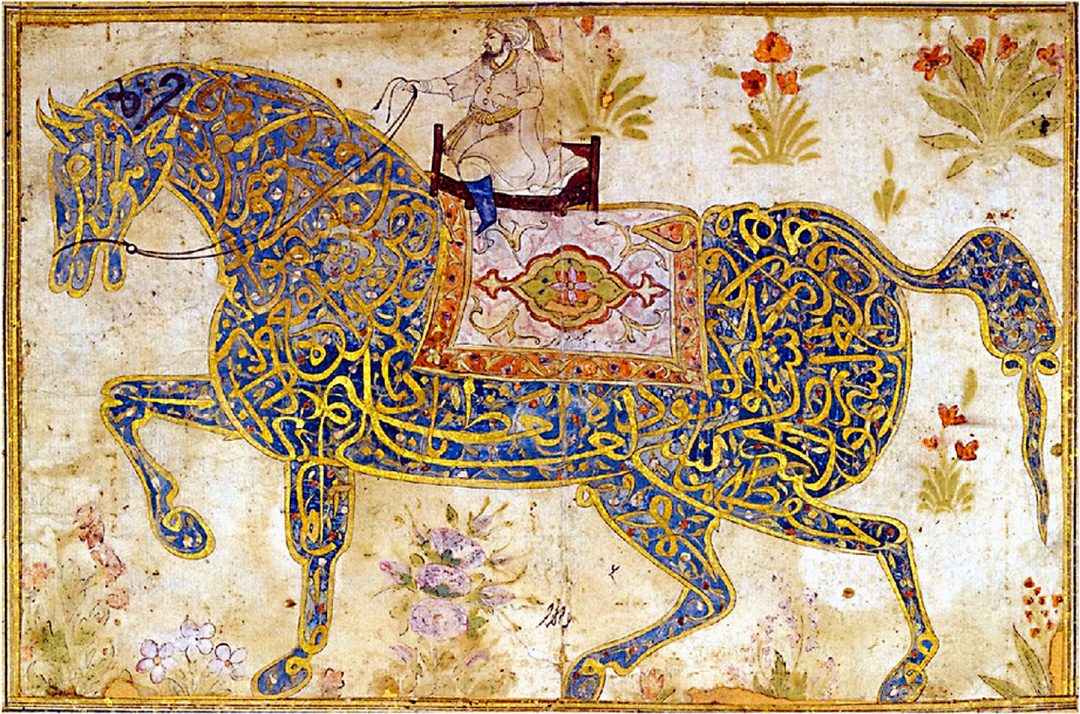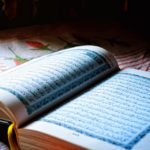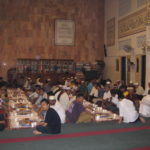The second chapter of the Holy Qur’an that was revealed to Prophet Muhammad (peace and blessings of Allah be upon him) is Surah Al-Baqarah. It contains a magnificent “ayat” or verse known as Ayat-ul- Kursi. This verse, also known as “Verse of the Throne,” is highly distinguished because it gives an emphatic description of Allah’s powers and attributes.
It begins with the word Allah and proceeds to tell mankind of the qualities that distinguish the Creator from the created, the Sustainer from the sustained and the Worshiped from the worshipers. It exhorts mankind to recognize and worship their one and true God on the basis of these qualities.
The word “Kursi” means a chair or throne. It can also be used to define power and authority. In Arabic, the word is used to indicate knowledge. Hence this verse can be interpreted at various levels and yet all meanings converge to show that Allah has no parallels or equals and none has the right to be worshiped but Allah.
English Translation
“Allah! [none has the right to be worshiped but He], the Ever-Living, the One Who sustains and protects all that exists. Neither slumber nor sleep overtakes Him. To Him belongs whatever is in the heavens and whatever is on earth. Who is he that can intercede with Him except with His Permission? He knows what happens to them [His creatures] in this world, and what will happen to them in the Hereafter. And they will never compass anything of His Knowledge except that which He wills. His kursi extends over the heavens and the earth, and He feels no fatigue in guarding and preserving them. And He is the Most High, above everything, the Most Great.” (2:55)
Ten Major Attributes of Allah
Allah is one and none has the right to be worshiped but Him. We should associate no partners with Him.
While everything on this earth is mortal and temporary, Allah is eternal and ever-living. It is Allah who sustains everyone and everything. All creation stands in need of Allah and relies on Him for His bounties and blessings but Allah stands in need of nothing that has been created.
Everything on the earth follows a cycle. The sun rises and sets. The tides ebb and flow. The moon wanes and grows. Living creatures are born and then they die. But our Creator is nothing like the things we see around ourselves. Allah is free of all imperfections, bodily needs, and weaknesses. Neither slumber nor sleep overtakes Him.
Allah is aware of all our deeds and actions and controls what every soul earns. He has a perfect watch over everything. Nothing escapes His knowledge, and no secret matter is hidden from Him. To Him belongs whatever is in the heavens and the earth indicates that all creatures come under Allah’s Sovereignty.
 On the Day of Judgment, each person will be accountable for his deeds in this world and Allah is the Lord of that day.
On the Day of Judgment, each person will be accountable for his deeds in this world and Allah is the Lord of that day.
Fate and destiny are in Allah’s control and He knows what happens to His creatures in this world, and what will happen to them in the Hereafter. Allah has perfect knowledge of all creation and its past, present and future.
All knowledge is from Allah and we can never learn anything except that which He wills.
His power extends over the heavens and the earth and encompasses everything.
He feels no weariness in guarding and preserving the heavens and the earth indicates that Allah cannot be compared to anything mortal. He is free of all weaknesses that overcome mankind. And He is the Most High, the Most Great.
When a believer truly believes in these attributes of Allah, it frees him from anxiety and fear of the unknown. It also makes him strive to be pious and righteous as he knows that he’ll be answerable for his deeds on the Day of Judgment where nothing except his piety and faith can come to his rescue. It makes him refute the claims of polytheists who believe in many deities and affirm other gods besides Allah.
Virtues of reciting Ayat-ul Kursi
“Everything has its pinnacle and the pinnacle of the Qur’an is Surah al-Baqarah. In it, there is an ayah which is the greatest in the Qur’an. [at-Tirmidhi]
The believer who recites it following an obligatory prayer is under the care and protection of Allah until the commencement of the next prayer.
Prophet Muhammad (may peace and blessings of Allah be upon him) said of Ayat ul Kursi: “The one who recites it after each of the obligatory prayers, then death will be the only thing [i.e. barrier] preventing him from entering al-Jannah.”
Abu Hurairah (radiAllahu anhu) narrated: “In Surah al-Baqaraah there is a verse which is the best of all the verses of the Qur’an. It is never recited in a house but the Shaytan (Satan) leaves: (That verse is) Ayat al-Kursi.”
It is customary for the Muslims to recite the ayat-ul-Kursi before going to sleep to seek Allah’s protection against all evils.






